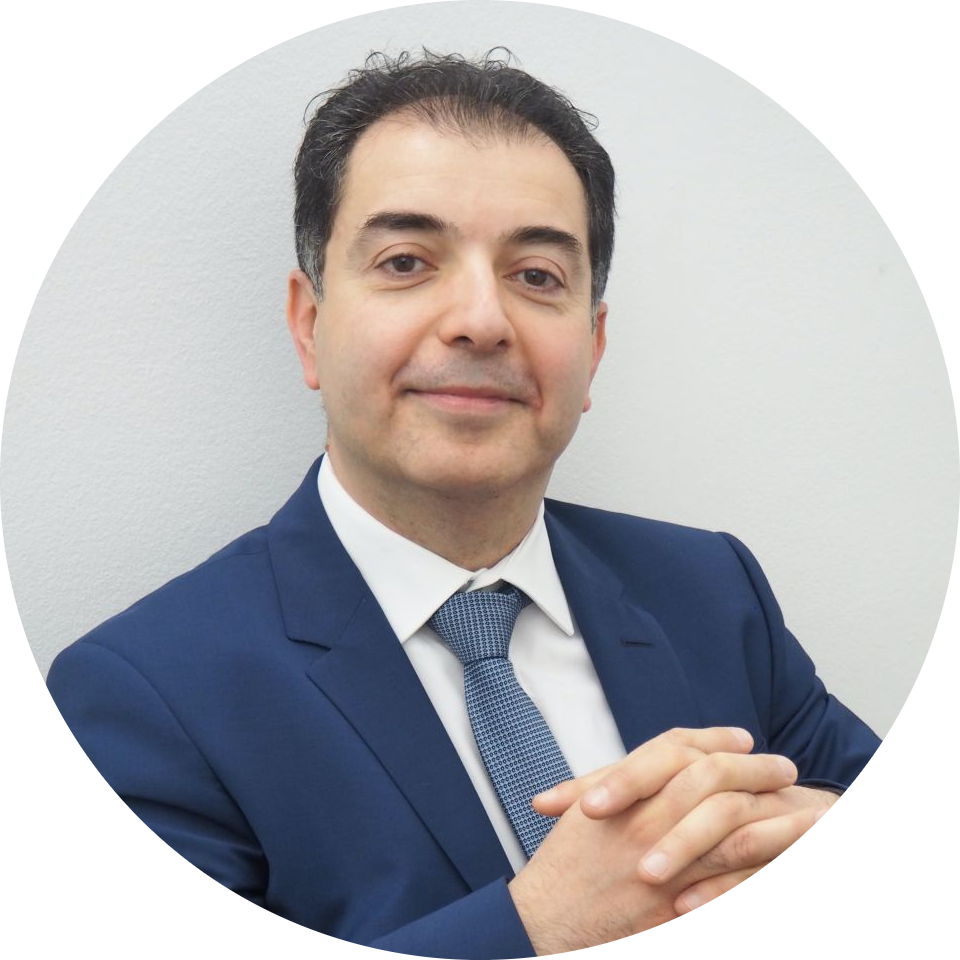
Everything You Need To Know About Dry Eye Syndrome
If your eyes do not produce enough tears, you may begin to experience symptoms associated with dry eye syndrome. This can be an uncomfortable condition that is distracting and irritating at best. However, if dry eyes are left untreated, they can lead to more severe conditions.
In this guide, we delve into greater detail, exploring what dry eye syndrome is, and the causes and treatment options available.
What is dry eye syndrome?
Dry eye syndrome, or dry eye disease, is typically characterised by little or no production of tears from the tear ducts in your eyes. This means you cannot maintain the protective film of moisture in your eyes, which prevents foreign bodies from harming your eyes and lubricating the eyeballs.
Dry eyes can lead to increased incidences of bacterial infections, inflammation, and potential corneal scarring. While it can be an uncomfortable condition, it is treatable and rarely leads to long-term vision damage.
Dry eye symptoms
Certain problems are common among those suffering from dry eyes. Generally, people are likely to experience a burning sensation, pain in the eyes, and redness. If you have dry eye syndrome, you may also experience watery tearing, mucous in the eyes, tired eyes, difficulty watching screens, struggling to focus, or a feeling of grit or sand in your eyes.
Typically, dry eyes are simply uncomfortable and distracting, but if you experience chronic symptoms that do not respond to home treatments, you might need to seek professional assistance in the form of dry eye treatment.
Take a look at our 3 tips to relieve dry eye symptoms for more information on how you can prevent flare-ups.
Dry eye causes
There are several factors that can increase your chances of experiencing dry eye syndrome.
For example, if you are over the age of 50, wear contact lenses, or spend a long time looking at screens without breaks, you are more likely to develop symptoms. Other risk factors include spending extended periods of time in air-conditioned or heated spaces, windy or cold weather, smoking and drinking alcohol, or taking certain medications.
Dry eyes may also be caused by other underlying conditions. These include but are not limited to blepharitis, Sjögren’s syndrome, or lupus.
Blepharitis and dry eye
Blepharitis often co-presents dry eye syndrome. Blepharitis is described as an inflammatory disorder of the eyelid which is commonly associated with bacterial or skin conditions. It causes red, swollen, and itchy eyelids and is usually treated through regular eyebaths.
Some symptoms of blepharitis like dandruff around the eyelashes, cysts, and swelling can all lead to complications in the normal lubrication of your eyes. The majority of dry eye syndrome cases are caused by blepharitis due to reduced meibomian gland lipid production. This allows more water to evaporate from your eye than usual, causing dryness.
Dry eye complications
The severity of dry eye syndrome varies from person to person. However, you should probably seek medical advice if you have noticed dry eye symptoms that don’t seem to go away or are getting worse. While dry eyes are rarely serious, they can lead to complications if left untreated.
Untreated, dry eyes can cause corneal ulcers, conjunctivitis and impair your ability to wear contact lenses.
Additionally, they can lead to difficulties with reading and driving, headaches, and keeping your eyes open. Although rare, such complications can be serious, so it is best to take action to diagnose and treat the causes of dry eyes before they lead to more severe conditions.
Sign up for our dry eyes self-test to find out more.
Schirmer’s test (dry eye test)
Schirmer’s test is a method of evaluating a patient’s ability to produce aqueous tears.
If you experience symptoms consistent with dry eye syndrome, a healthcare professional will likely use Schirmer’s test as a diagnostic tool. An ophthalmologist can use this method to determine whether the cause of surface dryness is caused by the lacrimal glands failing to work properly, as opposed to another condition.
The technique involves placing a strip of filter paper inside the lower eyelid. The patient then closes their eyes for five minutes. After this, the healthcare professional can remove the filter paper and determine the distance traveled by the tears. Typically, the less moisture on the paper, the fewer tears an individual has produced. This non-invasive test has been used for about 100 years for detecting dry eye syndrome.
Dry eyes treatment
There are many methods for dry eye treatment. One popular way of alleviating the symptoms is to use over-the-counter eye drops to moisten the surface of your eyes.
These can be helpful if you experience mild to moderate symptoms. Doctors might also prescribe medication to help with dry eye syndrome. This might be taken orally or as eye drops but will usually work by reducing inflammation in the eyelids.
Making slight changes to your lifestyle could also reduce the symptoms of dry eye syndrome. For example, you might be able to alleviate dry eye syndrome by not smoking or drinking alcohol, avoiding dusty environments, or wearing contact lenses less regularly.
If the condition does not respond to medication, your doctor might recommend undergoing certain procedures. For example, they might opt to close your tear ducts to slow the rate at which tears drain from your eyes. Another commonly used procedure is to clear blocked oil glands by heating the eyelids. This is a relatively quick and non-invasive treatment.
Book a consultation with Eye Clinic London
If you are experiencing symptoms consistent with dry eye syndrome, you should consider booking a consultation at Eye Clinic London. Dry eyes can be very uncomfortable and distracting, so it is best to seek professional help if you have noticed your dry eyes do not clear up after trying home treatments for the issue.
You should first attempt to clear up the issue yourself by cleaning your eyes, taking breaks from screens, and ensuring you get plenty of sleep.
If this is unsuccessful, find some over-the-counter eye drops before seeking medical advice. However, if you have tried these steps for a few weeks and haven’t noticed an improvement, or you see a change in the shape of your eyelids, you should consider booking an appointment with Eye Clinic London.
Share This Story, Choose Your Platform!
Suffering from dry eyes?
Take our 2-minute online dry eye assessment to see if we can help alleviate your symptoms and tackle your condition
Our most popular treatments
What our patients say…
“As soon as I met Mr Hamada, I knew I was in safe hands. He is an expert in his field, and very reassuring. His work was impeccable, and I would thoroughly recommend him to anyone wanting a professional, kindly, expert service.”
“I came all the way from the US to be evaluated by Mr. Samer Hamada who provided me with a world-class experience. I was treated with technology that doesn’t exist in the United States. My vision improved significantly since the surgery. Mr. Samer Hamada is definitely a Keratoconus expert.”
“I am glad to be with Mr Hamada. I am glad to be examined by Mr Hamada who acts responsibly and professionally. I never had this experience before from a previous ophthalmologist. I am thankful to Mr Hamada for the successful diagnosis and treatment of my case.”
“What a Consultant. Dr. Hamada is a man who was born for this profession. As soon as we walked into the room you felt that you had met a man who was gentle and kind. His demeanour was of a man who knew his trade. He speaks in a way that you will understand. He explains exactly what is wrong and the way he will help fix it for you.”
“Mr Hamada’s London Eye Care and his team are a delight. Nothing was too much trouble and the help, support, advice and guidance before during and after the surgery was all world class. I have worn glasses since the age of 13 years and had the onset of cataracts for the last five so it has all been very much a life changing experience to be free from glasses once more.”
“Mr Hamada, his assistant Joanna and his ophthalmic technicians provide a caring, efficient and high quality service. From the admin through to the surgical aftercare we were very well looked after and we had a high degree of confidence in Mr Hamada’s abilities. Our daughter’s cataracts have been corrected (under general anaesthetic) and her quality of life has improved substantially. You also feel well cared for throughout – the human touch is vital in healthcare, but not always delivered, so well done and thanks to all of the team.”
“We were referred to Dr.Hamada by one of the UK experts. The expert himself admitted that Dr.Hamada was better than him!! We were not disappointed at all. Dr. Hamada was excellent with my child. His communication skills and knowledge were exemplary. He gave us clear management plan and would not hesitate to recommend him.”
“Dr Hamada is an excellent, highly competent doctor with a very kind and sympathetic manner. His reputation for successfully treating dry eye patients seems unparalleled. His team are all extremely friendly and helpful, especially Dr Hamada’s PA Joanna, making the overall experience better than anywhere else I’ve been!”
“Appointment setting and follow-up were very efficient and well managed. Mr Hamada was kind, reassuring, knowledgeable and had a very warm manner with my young son, making him instantly feel at ease. I feel that we can trust him and that he will finally be able to solve my son’s long-term eye problems that have stumped other eye doctors.”
We have replaced some of the images of real patients who provided these testimonials to protect their privacy.

About the expert
Mr Hamada | Consultant Ophthalmologist and Corneal Surgeon
MD, MSc, DO (hons), FRCSEd, FRCOphth I am Samer, founder and consultant ophthalmic surgeon with over 20 years’ experience in ophthalmology. I am a world-renowned specialist in cornea, cataract and refractive surgery. I’m not only a leading surgeon but also the only dual fellowship trained in corneal diseases in children from reputable institutions in the UK. At Eye Clinic London I work closely with other consultant ophthalmologists, optometrists and orthoptists to achieve the best outcomes for our patients. Our main aim is to make sure our patients get the safest and best treatments available to them. We put your safety before anything else so you can rest assured that if you choose us you will be in the best and safest hands.












